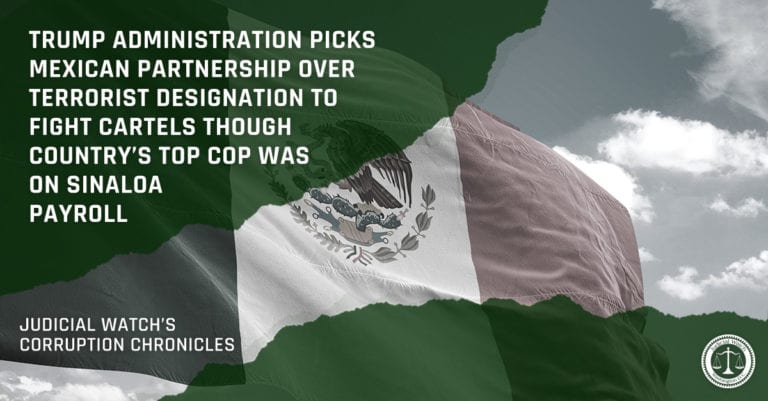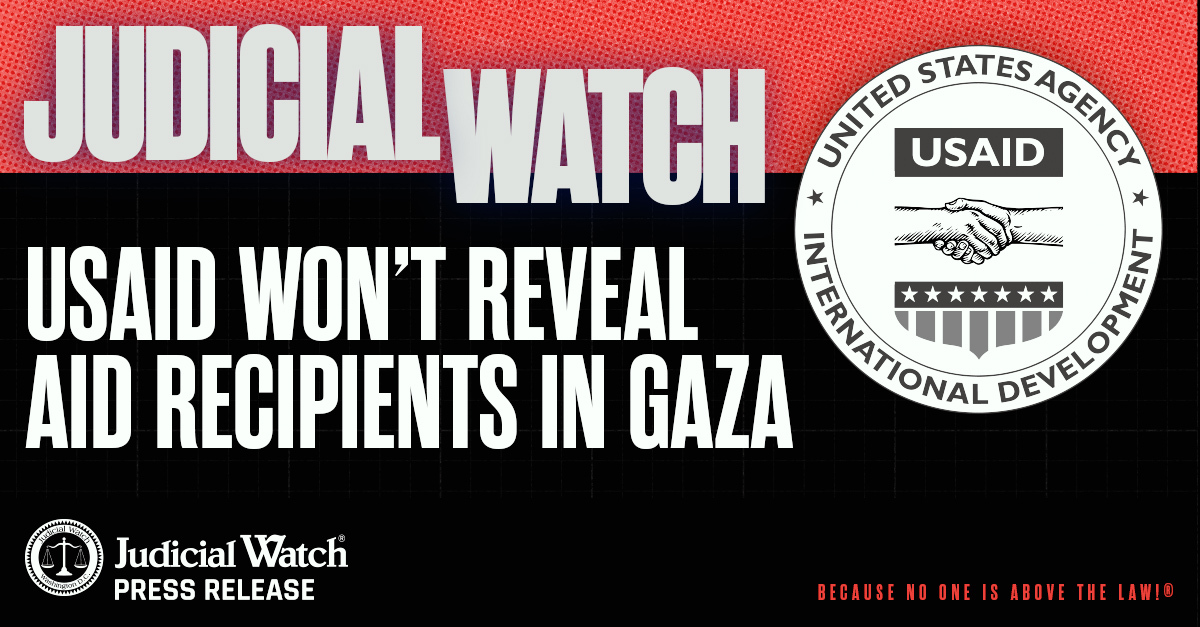
Trump Administration Picks Mexican Partnership over Terrorist Designation to Fight Cartels Though Country’s Top Cop Was on Sinaloa Payroll

President Donald Trump picked a horrible time to postpone designating Mexican drug cartels as Foreign Terrorist Organizations (FTO), a misguided decision made at the request of the divisive leader of a country with record-high crime and a failing economy. Days after declaring the cartels would finally be classified as FTOs by the U.S. Trump did an about-face to appease Mexican President Manuel Lopez Obrador, assuring that instead Mexico and the U.S. would “step up our joint efforts to deal decisively with these vicious and ever-growing organizations!”
It was laughable when Trump posted the absurd explanation for shelving the FTO designation on social media a few days go. How could the U.S. effectively join forces with a famously corrupt Latin American government to combat the sophisticated and violent criminal enterprises that have practically taken over the country? A federal case unsealed this week helps answer the question and sheds tremendous skepticism on Trump’s delusional U.S.-Mexico “joint efforts” plan. Mexico’s former top law enforcement official, a presidential cabinet member who oversaw the country’s federal police, took millions of dollars in bribes to protect one of the country’s most notorious drug cartels, according to federal prosecutors. The disgraced Mexican Secretary of Public Security, 51-year-old Genaro Garcia Luna, has been charged with three counts of cocaine trafficking conspiracy and one count of making false statements.
“In exchange for multimillion-dollar bribes, the defendant allegedly permitted the Sinaloa Cartel to operate with impunity in Mexico,” according to a Department of Justice (DOJ) announcement. During an 11-year period that Luna held high-ranking law enforcement positions in the Mexican government, he received millions of dollars in bribes from the Sinaloa Cartel in exchange for providing protection for its drug trafficking activities, the indictment states. In exchange for the bribes, the Sinaloa Cartel obtained safe passage for drug shipments, sensitive law enforcement information about cartel investigations and rival drug cartels. The scheme facilitated the importation of “multi-ton quantities of cocaine and other drugs” into the U.S., the DOJ reveals. Luna was in power until 2012 before moving to the U.S., but it is highly likely that other corrupt officials remain embedded in Mexico’s law enforcement agencies, making it impossible for the U.S. to effectively collaborate on the drug cartel issue.
Judicial Watch has presented a rock-solid case to classify Mexican cartels as FTOs and has long called on the U.S. government to issue the long overdue designation. Earlier this year Judicial Watch published a White Paper providing comprehensive documentation that Mexican drug cartels undoubtedly meet the U.S. government’s requirements to be designated as FTOs. To meet the criteria for FTO designation requires that organizations be foreign, engage in terrorism or terrorist activity or possess the capability and intent to do so and pose a threat to U.S. nationals or U.S. national security. Mexican drug cartels are inherently foreign, routinely commit criminal acts within the statutory definition of terrorism and arguably represent a more immediate and ongoing threat to U.S. national security than any of the currently-designated FTOs on the State Department list.
Properly designating the major Mexican Transitional Criminal Organizations (TCOs)—including Los Zetas, Juárez and Sinaloa cartels—as FTOs would enhance the federal government’s ability to combat them. An official FTO designation would enable the prosecution of those who provide material support to them, facilitate the denial of entry and deportation of TCO members and affiliates and eliminate the organizations’ access to the U.S. financial system. “FTO designations play a critical role in our fight against terrorism and are an effective means of curtailing support for terrorist activities and pressuring groups to get out of the terrorism business,” according to the State Department. For years Mexican cartels have hijacked and sabotaged buses, commercial trucks and trains, activity constituting terrorist activity under U.S. law. Judicial Watch’s White Paper lists specific cases, including gasoline tankers and more than a dozen robberies daily of Ferromex trains, one of the three largest rail transport operators in the country.
Mexican TCOs have also committed hundreds of political assassinations in recent years and members of Los Zetas launched a grenade and shot small arms fire at the U.S. Consulate in Monterrey. Los Zetas members also murdered Immigration and Customs Enforcement (ICE) Special Agent Jaime Zapata a few years ago. Judicial Watch’s White Paper also documents Mexican cartels’ use of explosive devices and high-caliber firearms, including rocket-propelled grenades and other military weapons. In 2018 Mexican officials seized nearly 2,000 high-caliber weapons from suspected cartel associates in Mexico City and there have been approximately 150,000 organized-crime related murders in Mexico since 2006. Last year alone, there were nearly 1,200 kidnappings in Mexico, according to official figures provided in the White Paper.















